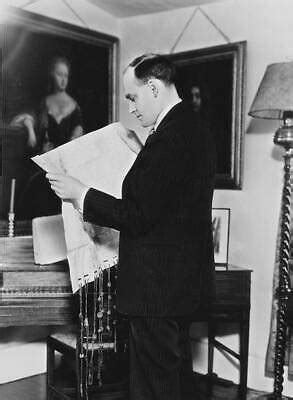A Quote by Arthur Bryant
All ultimately intermarried to produce a race of many strains, which may account for the paradox that a people famed for stolid, patient, practical common-sense; a nation as Napoleon said, of "shopkeepers", has produced more adventurers, explorers and poets than probably any other in history.
Related Quotes
To found a great empire for the sole purpose of raising up a people of customers, may at first sight appear a project fit only for a nation of shopkeepers. It is, however, a project altogether unfit for a nation of shopkeepers; but extremely fit for a nation whose government is influenced by shopkeepers.
I believe there are more instances of the abridgment of the freedom of the people by gradual and silent encroachments of those in power, than by violent and sudden usurpations; but, on a candid examination of history, we shall find that turbulence, violence, and abuse of power, by the majority trampling on the rights of the minority, have produced factions and commotions, which, in republics, have, more frequently than any other cause, produced despotism.
The Supreme Court said nothing about silliness, but I suspect it may play more of a role than one might suppose. People are, if anything, more touchy about being thought silly than they are about being thought unjust... Probably the first slave ship, with Negroes lying in chains on its decks, seemed commonsensical to the owners who operated it and to the planters who patronized it. But such a vessel would not be in the realm of common sense today. The only sense that is common, in the long run, is the sense of change.
If the United States haven't grown poets, on any scale of grandeur, it is certain that they import, print, and read more poetry than any equal number of people elsewhere -- probably more than the rest of the world combined. Poetry (like a grand personality) is a growth of many generations -- many rare combinations. To have great poets, there must be great audiences too.
For society as a whole, nothing comes as a "right" to which we are "entitled." Even bare subsistence has to be produced-and produced at a cost of heavy toil for much of human history. The only way anyone can have a right to something that has to be produced is to force someone else to produce it for him. The more things are provided as rights, the less the recipients have to work and the more others have to carry their load.
But the broader lesson of the first Industrial Revolution is more like the Indy 500 than John Henry: economic progress comes from constant innovation in which people race with machines. Human and machine collaborate together in a race to produce more, to capture markets, and to beat other teams of humans and machines.
Contrary to received wisdom, the British are not an insular people in the conventional sense - far from it. For most of their early modern and modern history, they have had more contact with more parts of the world than almost any other nation - it is just that this contact has regularly taken the form of aggressive military and commercial enterprise.







































